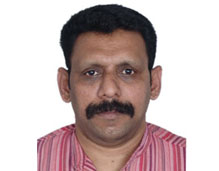Counterproliferation: India’s New Imperatives and Options
Despite its excellent record in the field of non-proliferation of technologies, know-how and equipment related to weapons of mass destruction (WMD) to other states, India has been essentially a passive actor in global non-proliferation initiatives. As a result, it does not as yet have a comprehensive framework or strategy within which it defines its anti-proliferation objectives. The Indo-US nuclear agreement of July 2005, with non-proliferation as an important component of cooperation, has given an opportunity to India to debate and prepare its approach for involvement in this crucial field. Since the early 1990s, the United States has promoted counter proliferation as a strategy to tackle proliferation of WMD as well as augment capabilities to operate in a nuclear, biological and chemical environment. However, after the 9/11 attacks, this strategy has attained a new character, represented by new initiatives that advocate methods such as military interdiction and coercive action to tackle proliferation and terrorism. Although the effectiveness of these initiatives is debatable, they have now widened the scope of mechanisms and regimes created to deal with perceived and emergent threats. Despite its reservations on many components of US-promoted initiatives, India may have to consider in the near future the feasibility of using diplomatic and military tools to tackle the proliferation problem in its neighbourhood, especially if it is tied to terrorism. While examining prospects of an Indian anti-proliferation strategy, a key question would be to what extent India should cooperate with new US initiatives.








